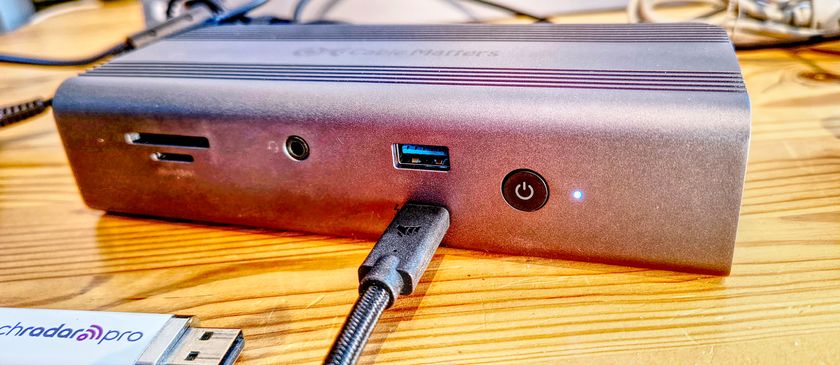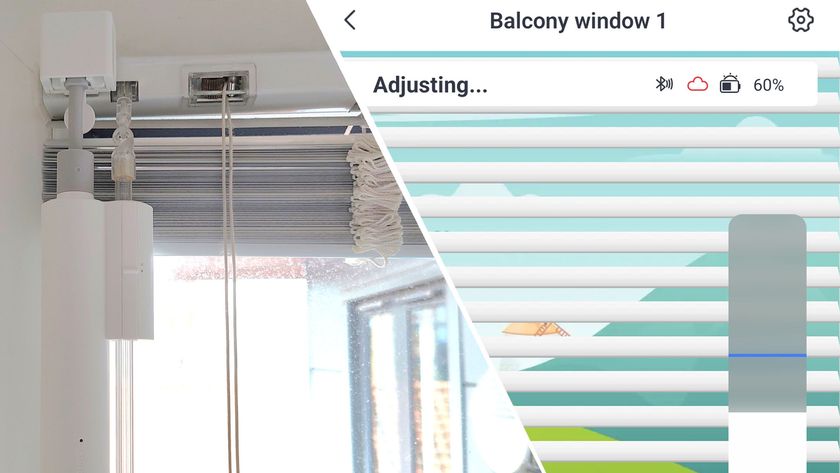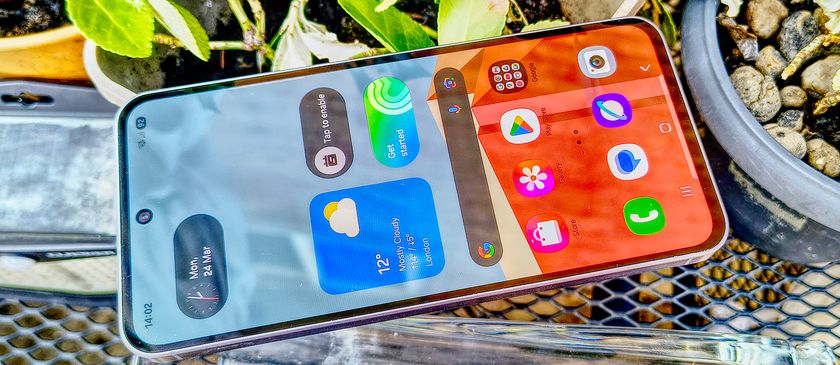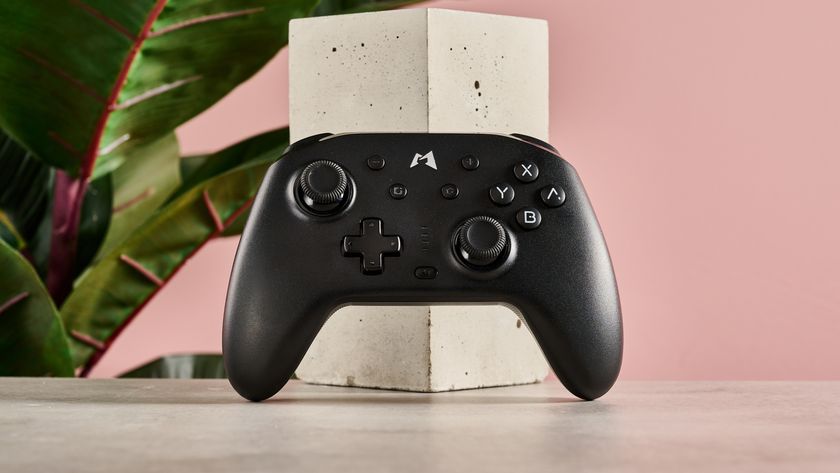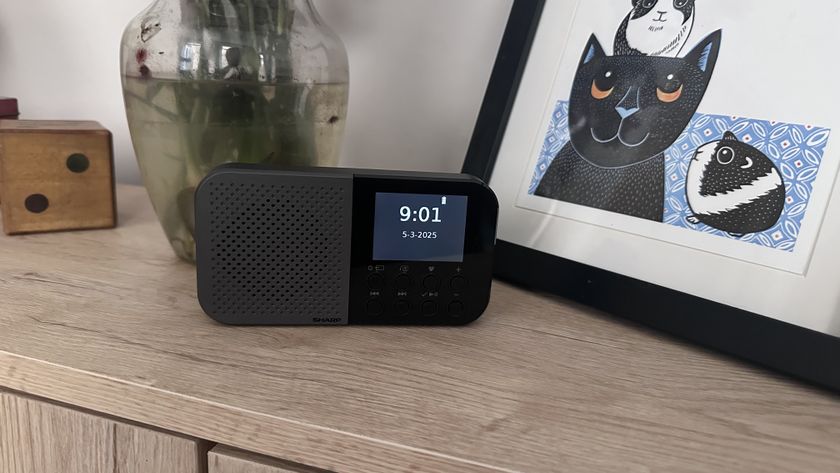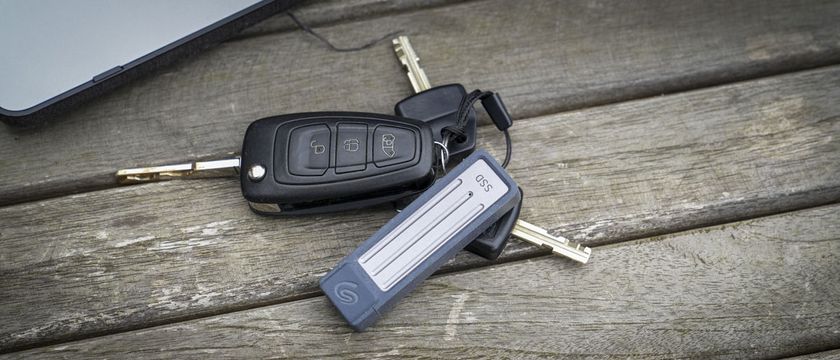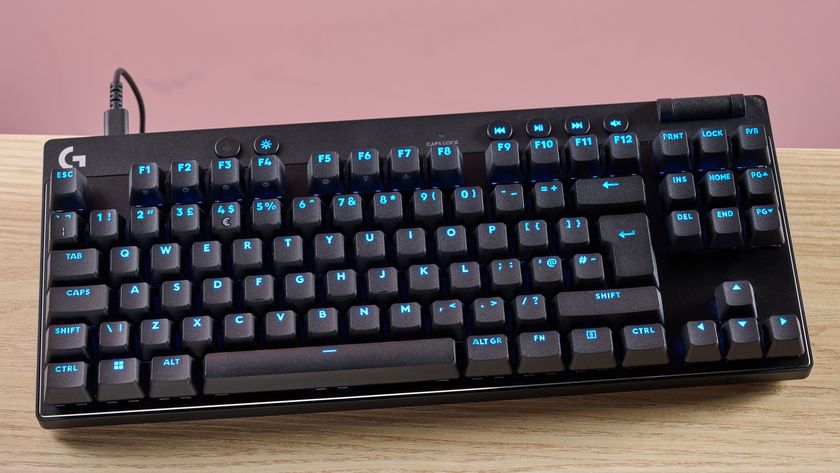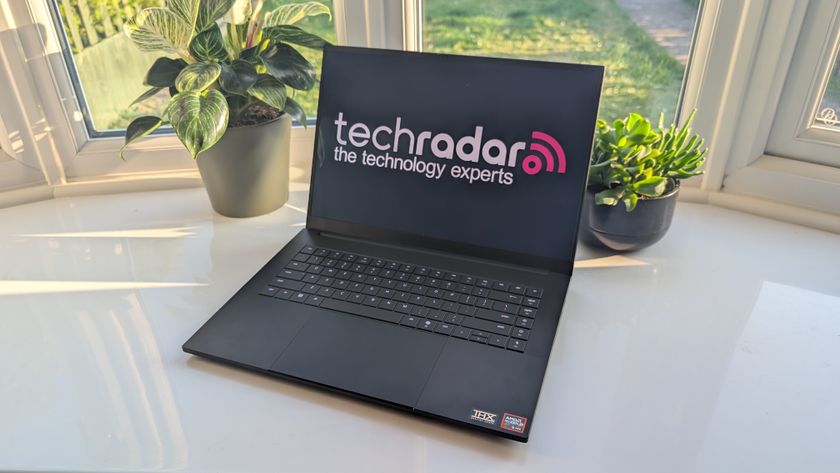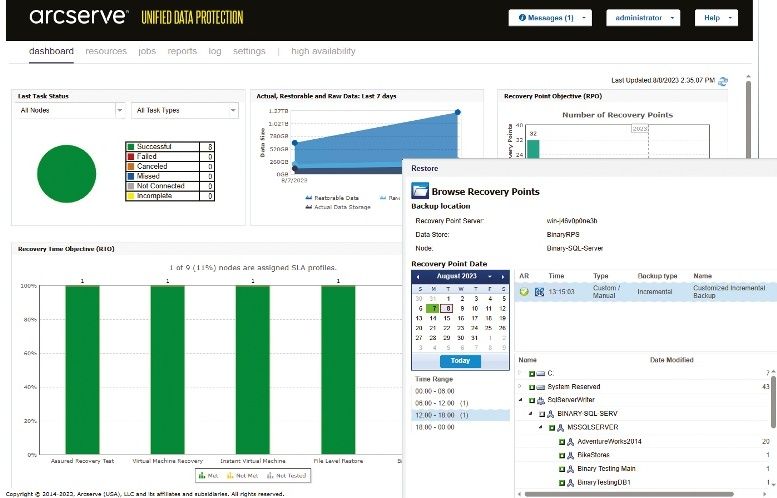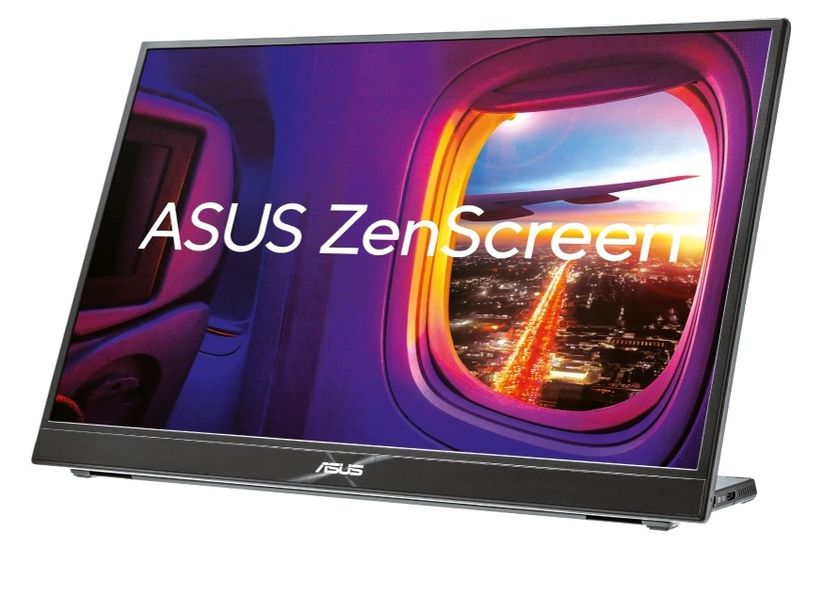TechRadar Verdict
The Espresso 15 display adopts a minimalist approach that works exceedingly well for a single purpose product. It does away with the extras including - sadly in this case - a stand. That’s perhaps our biggest complaint for an overall very well designed external display.
Pros
- +
Great design
- +
Good price
- +
MountGo is a revelation
- +
Minimalist approach works well
- +
Reverse pass-through option
- +
No battery
Cons
- -
Yellow tint
- -
55mm bezel is too thick
- -
Need at least one accessory for proper use
- -
Touch software for Mac is a paid option
- -
Magnetized approach is a bit hit and miss
Why you can trust TechRadar
Wdith its brushed aluminum design, gunmetal color, seamless flow between bezel and panel, flushed connectors and a deliberately minimalist approach to features, this monitor from Espresso Display stands out; in a good way. This slab of metal and glass - complete with sharp edges - is unlike any monitor we’ve seen and has already been touted as the thinnest portable monitor available.
The Australian startup behind the product raised more than £347,000 (around AU$633,000, $490,000) on Indiegogo to make this
Pricing and availability
The Espresso exists in two models; a 13.3-inch one (£249 or $299) and a 15.6-inch (£279 or $349) and can be ordered directly from the Australian vendor. Accessories include the MountGo, the MountPro, a flip case, a backpack, a screen protector and the Touch Software for Mac. You can’t use the espresso with a Mac without paying for the latter (£39 or $39). Similarly, the £39 ($49) flip case is the cheaper way to get the monitor to stand.
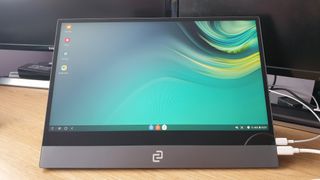
Design
Aside from the aluminum and glass unibody case, Espresso happily borrows from the classic “Book of Apple” by espousing the design philosophy of the company behind icons such as the MacBook Pro or the iMac. It is actually another Apple device that seems to be the inspiration for the Espresso.
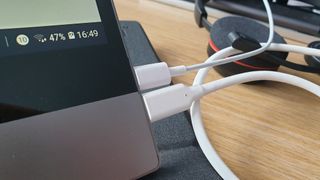
The iPad Pro tablet 12.9 measures 5.9mm thick; the Espresso is even thinner at 5.5mm. At 359 x 256mm, it is much larger than an A4 sheet and we can't help but think that the thick bezel at the bottom of the screen (that’s a whopping 55mm) should go in the next iteration. Doing so will also help shave some of the weight, which at 960g, is hefty; note that the display - unlike many of its rivals - doesn’t have a built-in battery, which in our view is a positive thing.
The input ports and controls are located on the hefty bezel; audio in plus volume rocker on one side (they can also be used to alter the brightness) and two Type-C and one mini-HDMI input on the other side. There’s no power button as the display automatically switches on and off and you can charge the host computer by plugging the power supply in on one end and the host device on the other.
Nifty but it depends on how powerful the charger is. The display comes with three cables: HDMI to mini HDMI, a USB Type-C to Type-A and a Type-C to Type-C; nothing for iPhone users. As you might guess, its svelte profile precludes the presence of a kickstand, which makes the purchase of an extra accessory, all but a necessity.
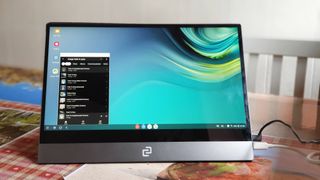
In use
The Espresso is an external monitor with a full HD resolution, a 16:9 aspect ratio and, according to the manufacturer, 99% sRGB coverage and a 60Hz refresh rate. The fact that it has a pair of speakers onboard is a bit of a miracle but don’t expect them to sound anything but tiny.
The display is glossy - and therefore quite reflective - and colours seem to be subdued even when the brightness is set to maximum with a slight yellow tint, quite noticeable on white background.
The touchscreen is reasonably responsive to swipe, scrolling as well as pinch and zoom. Kudos for delivering a display that is not a fingerprint magnet as well, quite something on a glossy display. It’s not totally foolproof but compared to some horrors we’ve seen before, it does a far better job.
We tested the Espresso 15 with a Dell Latitude 7490 with the Type-C to Type-C cable and the display was automatically recognised; the best of plug and play at work. Note that you will need to use the bundled cable as other Type-C cables may not be compatible.
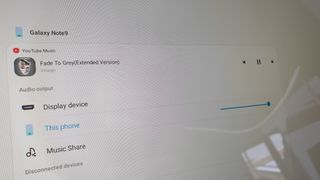
When we paired the Espresso 15 with a Samsung Galaxy Note 9, a 5W charger kept the display on while a 15W one charged the smartphone. Speaking of the Note 9, connecting the Espresso 15 to it identifies it as a DeX display and automatically launches Samsung’s enterprise-focused desktop.
A word about the DeX experience: you can either use your smartphone as a touchpad or use the display as a standalone computer. That’s right, you are able to run two applications simultaneously, say Slack on the monitor and Whatsapp on your smartphone but you won’t be able to run two instances of the same app.

We received the Espresso 15 flip case and the MountGo to complement the review sample. The first one didn’t impress in terms of quality and purpose as it proved challenging to get the angles right. The same applies to the MountGo, the collapsible standing desk with rubber feet and a strong magnet that holds the monitor into place.
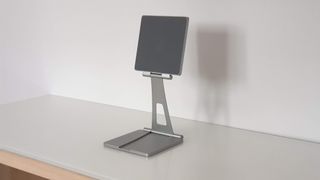
We’ve got two issues with this approach; once docked, the centre of gravity of the combined unit is quite high (the stand weighs 486g and when deployed most of that weight is in the air). That becomes a problem if you regularly physically interact with the display, causing it to wobble as you swipe and scroll.
The other point worth noting is that the display doesn’t snap into place (like say, a keyboard cover), instead, it often slides and we’d prefer to have an alternative arrangement. Neither though are deal breakers; you just need to get used to it.
Final verdict
Having toyed with a number of portable monitors in the past, back when they had microUSB ports, well before Type-C became ubiquitous, I can safely say that the Espresso portable display is one of the best we’ve handled. The attention to small details has been rarely matched by competitors.
We’d still want a few tiny improvements overall: a grey or dark Type-C cable (the white one is a bit too distracting), eliminate the thick bezel (which would make the portrait mode more elegant), make the magnetic stand more stable and the Espresso Touch software for Mac free.
- We've also highlighted the best portable monitors

Désiré has been musing and writing about technology during a career spanning four decades. He dabbled in website builders and web hosting when DHTML and frames were in vogue and started narrating about the impact of technology on society just before the start of the Y2K hysteria at the turn of the last millennium.

I tested the Tesla Powerwall 3 – going off-grid feels good, but it's a long-term investment rather than a quick fix
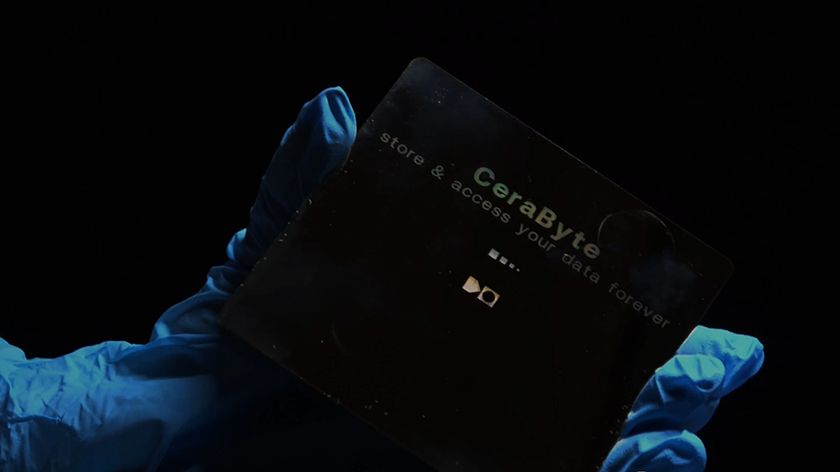
After Pure Storage, CIA-backed VC invests in ceramic-based startup that wants to build Exabyte-class storage

Harry Potter TV show: everything we know so far about the upcoming HBO adaptation

